household responsibility system
description: practice in China, first adopted in agriculture in 1979 and officially established in 1982, by which households are held responsible for the profits and losses of an enterprise
13 results
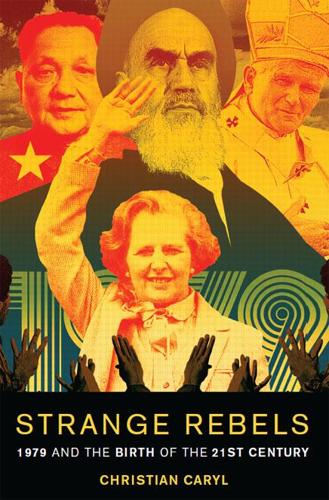
Strange Rebels: 1979 and the Birth of the 21st Century
by
Christian Caryl
Published 30 Oct 2012
“Baochan daohu [“contracting by the household”] is like a chicken pest,” one peasant said. “When one family’s chicken catches the disease, the whole village catches it. When one village has it, the whole country will be infected.”20 In 1979, by one estimate, 10 percent of Anhui Province was practicing the household-responsibility system. In June 1979, after paying a visit to Fengyang County to see the results for himself, Wan Li approved the expansion of the program to the entire province.21 In the countryside, at least, the party was beginning to release its grip. Zhao Ziyang, Wan’s counterpart in Sichuan Province, took note.
…
In 1978 he had begun allowing the communes to subdivide their production teams into smaller groups. He justified what he was doing as a way of “bringing individual initiative into full play.” He may have actually regarded the measure as an intermediate step on the way toward full-scale revival of the household-responsibility system. In 1979 he then allowed some production teams in the province to break work groups down into individual families. The measures sparked political resistance from conservatives. (The Maoists had not vanished completely, after all.) “But Mr. Zhao is ready to risk it,” wrote a group of visiting British journalists.
…
But amid the ruins of Mao’s utopian edifice, Mosher also discovered intriguing evidence of a powerful source of transformative energy: individual initiative. Though they were far from the places where the most important experiments were under way, the people in Mosher’s remote Guangdong village had already picked up on the spread of the household-responsibility system, and he succeeded in capturing a nice snapshot of the spirit that, once unleashed, would soon lift hundreds of millions of people out of poverty. The old entrepreneurial mind-set of the Chinese “flared anew once opportunity presented itself,” Mosher noted. When one woman heard that the party might soon allow a return to household farming, she immediately began making plans to start cultivating her own mulberry patch, planting the bushes between the rows of trees on the farm.
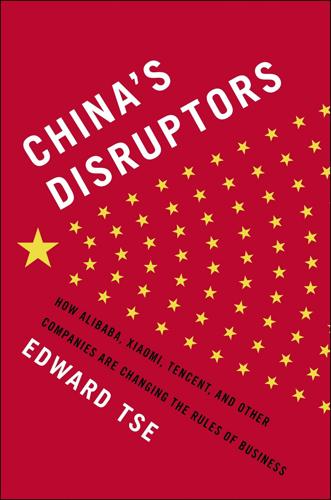
China's Disruptors: How Alibaba, Xiaomi, Tencent, and Other Companies Are Changing the Rules of Business
by
Edward Tse
Published 13 Jul 2015
He had been targeted and pushed aside during the Cultural Revolution, but with Mao’s death he and his ideas returned to ascendancy, and he became the de facto leader of the country. The first reforms under this new regime took place in the countryside. Under what became known as the “Household Responsibility System,” farmers, once they had met various contractual obligations to sell a share of their produce to the state, were free to sell everything else they grew or raised at whatever price they could find on the market. After years of repression, agricultural output soared, rising by as much as 10 percent annually through the 1980s.
…
., 123 Forbes, 10 Ford Motor Company, 123, 131, 133 Forever 21, 195 Fosun, 123, 138, 148, 155, 156, 194 Foursquare, 129 Foxconn, 112 Gang of ’92, 45–46, 54, 148, 168–69 Gao Feng Advisory Company, 25 Gavekal Dragonomics, 73 Geely Auto, 12, 44, 76, 123, 131–34, 138, 175, 185, 212 General Mills, 196 General Motors, 133, 137, 179 Gerke, Roland, 196 Germany, 121, 216 doctorates in, 108 global financial crisis, 73, 78 Global Solar Energy, 123 Golden Monkey, 194 Goldman Sachs, 37, 136 Gome Electrical Appliances, 13 Google, 83, 87, 112, 127, 128, 197 Great Firewall of China, 82 Great Leap Forward, 3–4 Great Wall Technology, 76, 126 Guo Guangchang, 148 Guo Wei, 148 Haier, 3, 5–8, 10, 47, 49, 58–60, 76, 84, 94, 98, 100, 101, 175, 185, 187, 200, 208, 224 Hainan, 46 Hangzhou Wahaha Group, 52, 76 Harvard Business Review, 93–94 health-care system, 12, 153–57, 162, 163, 212 Hengan International, 12, 53, 175–78, 199, 200 Hershey, 194 Hertz Global Rental, 194–95 Hewlett-Packard, 125, 128 Hoffman-La Roche, 155 Home Depot, 180 Honda, 133 Honeywell, 190, 192, 196 Hong Kong, 68, 214, 223–24 Hong Kong Stock Exchange, 68, 86, 177 hospitals, 154–56, 212 Household Responsibility System, 43 Huang Guangyu, 13 Huang Nubo, 45, 63, 168 Huawei Technologies, 11, 20, 43–44, 47, 54, 60, 67, 75, 84, 89, 122, 128, 136, 138, 139, 140, 175, 200, 222 innovation by, 94, 101–5 Hui Ka Yan, 48 Hu Jintao, 147 Hutchison Telecom, 103 Hyundai, 133 IBM, 125, 127–28, 129, 178 ICBC, 149 ICQ, 85 IDG, 85–86 India, 68 infrastructure, 71, 78, 79, 82, 83, 85, 99, 105, 111, 114, 137–38, 153, 163, 164, 166, 188, 191, 192, 210, 223, 224 Innovation Works, 111–12 Intel Capital, 113 interest-rate liberalization, 40, 152–53 Internet, 27, 81–90, 82, 135–36, 161, 186, 197, 209–10, 218–19, 221–22 iPhone, 68, 69, 94 iQiyi.com, 162 Japan, 94, 121, 141, 216 R&D spending in, 107 JD.com, 84, 87 revenue of, 89 Jialing, 76 Jiang Jianqing, 149 Johnson & Johnson, 175 Joyo.com, 12, 57, 68 Jumei.com, 206 “just-in-time” production system, 94 Kan, Michael, 69 Kandi Technologies Group, 133 Kao, 175 KFC, 180 Kimberly-Clark, 12, 175 Kingsoft, 68 Kirby, William C., 93–94 Konka, 76 Koo, Victor, 158–59, 160, 218 Krugman, Paul, 9 Kutcher, Ashton, 129 Lardy, Nicholas, 17 Lau, Martin, 136 Lau, Ricky, 225 Lee, Hudson, 196 Lee, Kai-fu, 111–12 legal infrastructure, 114 Legend, 44 Legend Holdings, 112, 126 Lei Jun, 11, 12, 57, 67, 81, 112, 162, 197, 226 Lenovo, 11, 20, 44, 54, 67, 75, 89, 112, 139, 140, 148, 171 expansion by, 124–29, 130 revenue of, 125–26, 127, 128 Leung, Antony, 224 Levi’s, 195 Li, Richard, 85–86 Li, Robin, 11, 49, 50, 64, 81, 88, 139 liberalization, 44, 55, 71, 72, 75, 78–79, 152, 154, 166–67, 178, 181, 210, 211, 223 of interest rates, 40, 152–53 Li Dongsheng, 148 Liebherr, 5–6 Lifan, 76 Li Ka-shing, 85 Li Keqiang, 210, 215 Lin Bin, 68 Li Shufu, 12, 44, 47, 131–34, 138, 175, 185 Little Emperors, 51–53 Liu Chuanzhi, 54, 171 Liu Junling, 96 Liu Mingkang, 149 Loncin, 76 L’Oréal, 205 Lu Guanqiu, 130 Lyft, 135 Ma, Jack, 10, 33–40, 41, 47, 50, 54–55, 60–61, 62–63, 64, 86, 136, 148, 197, 201, 221 background of, 36–37 environmental work of, 60, 168, 169–70 and U.S.
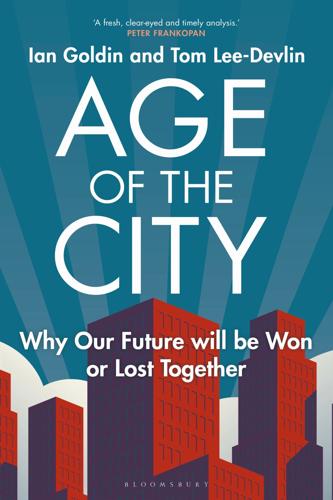
Age of the City: Why Our Future Will Be Won or Lost Together
by
Ian Goldin
and
Tom Lee-Devlin
Published 21 Jun 2023
Never before have so many people moved in such a short time from the countryside to cities. By 2030 one in five city dwellers in the world will be Chinese. The economic modernization of China began in earnest at the close of the 1970s under the leadership of Deng Xiaoping. First for reform was agriculture, where land was decollectivized and the ‘Household Responsibility System’ was introduced, shifting responsibility for profits and losses back to farmers. This set the foundations for a rapid acceleration in improvements in cereal yields, as farmers became incentivized to adopt more efficient practices. Next was industry. Rather than opening the economy to foreign influence all at once, the Chinese leadership established ‘Special Economic Zones’ in four coastal cities – Shenzhen, Shantou, Zhuhai and Xiamen – in which foreign multinationals were offered tax incentives and a more business-friendly operating environment in exchange for establishing export manufacturing facilities.
…
Index abortion here abstract mathematics here Achaemenid Empire here Adani, Gautam here agglomeration effects here agriculture here, here, here, here, here, here, here, here, here and carbon emissions here and disease here, here productivity here, here vertical farming here Ahmedabad here air-conditioning here, here airports here, here, here, here Albuquerque here Alexandria here Allen, Paul here Allen, Thomas here Altrincham here Amazon here, here, here Amazon rainforest here Amsterdam here Anatolia here Anderson, Benedict here Anheuser-Busch here antibiotics here, here, here Antonine Plague here Anyang here apartment conversions here, here Apple here, here, here Aristotle here Arizona State University here Arlington here Assyrian merchants here Athens, Ancient here, here, here, here, here, here Atlanta here, here Austin here, here, here automation here, here, here, here, here, here, here, here axial precession here Baghdad, House of Wisdom here Baltimore here, here Bangalore here, here Bangkok here Bangladesh here, here, here, here Barlow, John Perry here Bauhaus here Beijing here, here Belmar redevelopment here Berkes, Enrico here Berlin here, here, here Berlin Wall, fall of here Bezos, Jeff here biological weapons here ‘biophilia’ here biospheres here bird flu here Birmingham here, here Black Death here, here, here Blake, William here Bloom, Nick here BMW here ‘bobo’ (bourgeois bohemian) here, here, here Boccaccio, Giovanni here Boeing here, here, here Bogota here Bologna here Bonfire of the Vanities here Borneo here Boston here, here, here Boston University here, here Brand, Stewart here Brazil here, here Brexit here, here, here Bristol here Britain broadcasting here deindustrialization here education here enclosure movement here foreign aid here high-speed rail here, here house prices here immigration here industrialization here, here infant mortality here ‘levelling up’ here life expectancy here mayoralties here per capita emissions here per capita incomes here remote working here social housing here Brixton riots here broadcasting here Bronze Age here, here, here, here bronze, and shift to iron here Brooks, David here Brynjolfsson, Eric here Burgess, Ernest here bushmeat here, here Byzantine Empire, fall of here Cairncross, Frances here Cairo here calendar, invention of here Cambridge, Massachusetts here Cambridge University here canals here, here, here ‘cancel culture’ here Cape Town here Catholic Church here C40 Cities partnership here Chadwick, Edwin here Chang’an (Xi’an) here, here, here, here Charles, Prince of Wales here charter cities here Chengdu here Chiba here Chicago here, here, here, here, here, here, here, here childbirth, average age at here childcare here, here, here, here, here China here ancient here, here, here, here call-centre workers here cereal production here civil strife here and Covid-19 pandemic here Cultural Revolution here definition of cities here economic liberalization here entry into WTO here Household Responsibility System here hukou system here One Child Policy here Open Coastal Cities here per capita emissions here rapid ageing here Special Economic Zones here technology here urbanization here China Towns here Chinese Communist Party here cholera here, here, here, here Chongqing here cities, definition of here Citigroup here city networks here civil wars here Cleveland here, here, here, here climate change here, here, here, here, here, here, here, here, here, here coastal cities here, here, here, here commuting here, here, here, here, here, here, here, here Concentric Zone Model here Confucius here conspiracy theories here Constantinople here, here containerization here, here Copenhagen here, here Corinth here Cornwall here corruption here Coventry here, here covid-19 see pandemics crime rates here ‘cyberbalkanization’ here cycling here, here, here, here Damascus here Dark Ages here, here data science here de Soto, Hernando here deforestation here, here, here, here Delhi here Dell here Delphic oracle here democracy here, here, here Democratic Republic of Congo here, here, here, here, here, here Deng Xiaoping here dengue fever here Denmark here, here Detroit here, here, here, here, here, here, here Dhaka here, here, here, here, here Dharavi here Diana, Princess of Wales here diasporas here, here Dickens, Charles here district heating systems here Dresden here drought here, here, here, here, here, here, here Drucker, Peter here dual-income households here, here Dubai here, here, here Dunbar, Kevin here Düsseldorf here East Antarctic ice sheet here East China Sea here, here Easterly, William here Eastern Mediterranean here, here, here Ebola here Edinburgh here education here, here, here, here, here, here, here, here, here, here, here, here, here, here higher education here, here, here, here; see also universities Japanese school system here Egypt here, here Ancient here, here, here, here Ehrenhalt, Alan here electric vehicles (EVs) here Engels, Friedrich here Enlightenment here Epic of Gilgamesh here Erfurt here Ethiopia here, here Euripides here European Enlightenment here exchange rates here Facebook here, here, here fake news here famine here, here fertility rates here, here, here ‘15-minute city’ principle here Fischer, Claude here Fleming, Alexander here flooding here, here, here, here, here, here, here Florida, Richard here, here food shortages here Ford, Henry here, here foreign aid here fossil fuels here, here France here, here, here, here, here, here, here, here, here, here, here Frankfurt here Franklin, Benjamin here Friedman, Thomas here, here Fryer, Roland here Fukuoka here, here Gaetani, Ruben here Galileo Galilei here Ganges River here Garden Cities here Garden of Eden here Gates, Bill here, here gay community here General Electric here General Motors here genetic engineering here gentrification here, here, here, here, here George, Andy here Germany here, here, here, here, here, here Gingrich, Newt here glaciers here Glasgow here Glass, Ruth here global financial crisis here, here, here global population, size of here globalization here, here, here, here, here, here, here, here, here, here Goldstein, Amy here Google here, here, here Goos, Maarten here Grant, Adam here Great Depression here, here Greece, Ancient here, here, here, here, here Griffith Observatory here Gropius, Walter here Gruen, Victor here Gulf Stream here Haiti here Hamburg here Hanseatic League here, here Harappa here, here Harry, Prince here Harvard University here hate speech here Haussmann, Baron here, here Hawaii here Hazlitt, William here healthcare here, here, here, here, here, here, here, here, here, here heatwaves here, here Hebei here Heckscher, Eli here Herodotus here Himalayas here Hippocrates here Hippodamus here Hittite Empire here HIV here, here Ho Chi Minh City here Holocene here, here, here homophily here Hong Kong here house prices here, here, here, here, here, here, here Houston here, here, here Howard, Ebenezer here Hudson River here Hugo, Victor here Hume, David here Hurricane Katrina here hybrid working, see remote and hybrid working ice melting here, here import substitution industrialization here InBev here India here, here, here, here, here, here, here, here, here fertility rates here Indonesia here, here Indus River here Indus Valley here, here, here inequality here, here, here, here, here, here, here, here, here, here, here infant and child mortality here, here, here, here influenza here, here, here ‘information cocoons’ here Instagram here internet here, here, here, here, here, here invention here, here, here, here, here, here, here, here, here, here irrigation here, here, here, here Italy here Jacobs, Jane here, here, here Jakarta here, here James, Sheila here Japan here, here, here, here, here, here, here, here, here post-war development here schooling system here Jenner, Edward here Jesus Christ here Jobs, Steve here jobs apprenticeships here ‘lousy’ and ‘lovely’ here tradeable and non-tradeable here Justinian Plague here Kashmir here Kenya here Kinshasa here, here Kish here knowledge workers here, here, here, here, here, here, here, here, here, here, here, here Koch, Robert here Kolkata here Korean War here Krugman, Paul here Kushim Tablet here Lagash here Lagos here, here, here, here, here, here, here Lahore here land titling programmes here Las Vegas here Latin language here Lee Kuan Yew here, here Leeds here, here Leicester here Leipzig here, here, here, here Letchworth here life expectancy here, here, here, here, here, here Liverpool here, here Ljubljana here London here, here, here, here, here, here, here bike lanes here Canary Wharf here, here Chelsea here, here, here China Town here cholera outbreaks here City of London here, here coffeehouses here and Covid-19 pandemic here financial services here gentrification here, here, here Great Stink here, here heatwaves here, here house prices here, here hybrid working here, here immigration here, here incomes here, here mayoralty here migration into inner London here population growth here, here, here poverty here, here public transport here, here, here slum housing here social housing here suburbanization here Los Angeles here, here, here, here Louisville here Luoyang here Luther, Martin here Luton Airport here Luxembourg here, here Lyon here McDonald’s here McDonnell Douglas here McLuhan, Marshall here Madagascar here malaria here, here, here, here Malaysia here Mali here malls, reinvention of here Manchester here, here, here, here, here, here, here Manila here Manning, Alan here Markle, Meghan here marriage here Marshall, Alfred here Marshall, Tim here Marx, Karl here Maya here, here measles here, here, here Meetup here mega regions here Mekong River here Memphis, Egypt here, here Mesoamerica here, here Mesopotamia here, here, here metallurgy here metaverse here methane here, here Mexico here Miami here, here, here microbiology here Microsoft here, here, here middle class, rise of here migration policy here millennial generation here Milwaukee here, here Minoan civilization here Mistry, Rohinton here MIT here MMR vaccine here ‘modernization’ theory here Mohenjo-Daro here, here Moretti, Enrico here, here mortality rates here, here, here, here, here, here, here, here, here, here, here, here motor car, invention of here Moynihan, Daniel here Mumbai here, here Mumford, Lewis here, here, here, here Munich here, here Mycenaean civilization here Nagoya here, here Nairobi here Nashville here National Landing, Arlington here Natural History Museum here natural resource exports here Nestlé here Netherlands here network effects here New Economics Foundation here New Orleans here, here New York here, here, here, here, here, here, here, here, here, here carbon emissions here and Covid-19 pandemic here gentrification here, here housing here, here, here incomes here, here Manhattan here, here, here, here, here population growth here, here and rising sea levels here slum housing here suburbanization here, here subway here waste and recycling here New York Central Railroad here New York World Fair here Newcastle here Nextdoor here Niger here Nigeria here, here, here, here Nilles, Jack here, here Nipah virus here Norway here, here Nottingham here Novgorod here ocean and air circulation here office rental and sales prices here Ohlin, Bertil here Oldenburg, Ray here online deliveries here OpenTable here Osaka here, here Oslo here Ottoman Empire here Oxford, population of here Oxford University here Pacific Belt Zone here Padua here Pakistan here, here, here pandemics here, here, here, here, here, here, here, here, here, here, here, here, here, here and zoonotic diseases here paramyxovirus here Paris here, here, here, here, here, here, here, here, here, here, here, here, here, here, here, here Paris Conference (2015) here Park Chung-hee, General here parks here Pasteur, Louis here Pearl River Delta here, here Peñalosa, Enrique here per capita income here Philadelphia here Philippines here, here Phoenix here, here Pixar here plague here, here, here, here Plato here plough, invention of here pollution here, here, here, here air pollution here, here, here, here population growth here, here, here, here, here, here, here, here PORTL here potter’s wheel, invention of here printing press here, here productivity here, here, here, here, here agricultural here, here Protestantism, rise of here public transport here, here, here, here, here, here, here, here, here, here, here, here, here, here Putnam, Robert here, here quarantine here railways here, here, here, here, here high-speed rail here, here, here Ralston Purina here Reagan, Ronald here recycling here, here religion here remote and hybrid working here, here, here, here Renaissance Florence here, here, here renewable energy here, here Republic of Letters here République des Hyper Voisins here ‘resource curse’ here Rheingold, Howard here Ricardo, David here Rio de Janeiro here Riverside, San Francisco here robotics here Rockefeller, John D. here Roman Empire here, here, here Rome, Ancient here, here, here, here, here, here Romer, Paul here Rotterdam here Rousseau, Jean-Jacques here, here Sahel here, here sailboat, invention of here St Augustine here St Louis here, here, here Salesforce here San Diego here San Francisco here, here, here, here, here, here, here, here, here, here, here gentrification here, here hybrid working here, here San Francisco Bay Area here, here, here Santa Fe here São Paulo here Savonarola, Girolamo here Scientific American here Scott, Emmett J. here sea levels, rising here, here, here Seattle here, here, here, here, here, here Second Opium War here Seneca here Seoul here Shanghai here, here, here, here, here Shantou here Sheffield here, here, here Shen Nung here Shenzhen here, here Siemens here Silk Roads here, here Sinclair, Upton here Singapore here, here, here, here Slater, Samuel here smallpox here, here Smith, Adam here, here Snow, John here social capital here social housing here, here social media here, here, here, here, here Socrates here solar panels here South Africa here South Korea here, here, here, here, here, here Southdale Center here specialization here, here, here, here, here, here Spengler, Oswald here Starbucks here Stephenson, Neal here Stewart, General William here Stuttgart here Sub-Saharan Africa here subsidiarity principle here suburbanization here, here, here, here, here, here, here, here, here Sunstein, Cass here Sweden here, here Sydney here, here, here, here, here, here Syrian refugees here, here Taiwan here Tanzania here telegraph here Tempest, Kae here Thailand here Thames River here, here Thatcher, Margaret here, here, here ‘third places’ here Tianjin here Tocqueville, Alexis de here Toffler, Alvin here Tokyo here, here, here, here trade liberalization here trade routes here Trump, Donald here, here tuberculosis here, here, here Twain, Mark here Twitter here, here typhoid here, here typhus here, here Uber here Uganda here Ukraine here, here Umayyad Caliphate here unemployment here, here United Nations here, here United States anti-global populism here anti-trust regulation and industrial consolidation here anxiety and depression here broadcasting here car registrations here cost of education here decline in trust here deindustrialization here Gilded Age here Great Migration here house prices here, here immigration here industrialization here inequality here labour mobility here ‘magnet schools’ here parking spaces here patent filings here per capita emissions here, here per capita incomes here remote working here, here, here return on equity here Rust Belt here schools funding here slavery here socioeconomic mobility here suburbanization here tax revenues here US Federal Housing Authority here US General Social Survey here US Trade Adjustment Assistance Program here universities here, here, here University College London here University of Texas here university-educated professionals here Ur here urban heat island effect here urbanism, subcultural theory of here Uruk here, here, here, here, here vaccines here, here Van Alstyne, Marshall here Vancouver here Venice here, here Vienna here, here Vietnam here voluntary associations here, here Wakefield, Andrew here walking here, here, here Wall Street here Warwick University here Washington University here WELL, The here Welwyn Garden City here wheel, invention of here wildfires here, here William the Conqueror here Wilson, Edward Osborne here, here Wilson, William here World Bank here, here World Health organization here World Trade Organization here World Wide Web here writing, invention of here Wuhan here, here Xiamen here Yangtze River here, here Yangtze River Delta here yellow fever here Yellow River here, here Yersinia pestis here Yokohama here YouTube here, here Yu the Great here Zhuhai here Zoom here Zoroastrianism here BLOOMSBURY CONTINUUM Bloomsbury Publishing Plc 50 Bedford Square, London, WC1B 3DP, UK 29 Earlsfort Terrace, Dublin 2, Ireland BLOOMSBURY, BLOOMSBURY CONTINUUM and the Diana logo are trademarks of Bloomsbury Publishing Plc This electronic edition first published in Great Britain 2023 Copyright © Ian Goldin and Tom Lee-Devlin 2023 Ian Goldin and Tom Lee-Devlin have asserted their right under the Copyright, Designs and Patents Act, 1988, to be identified as Authors of this work All rights reserved.
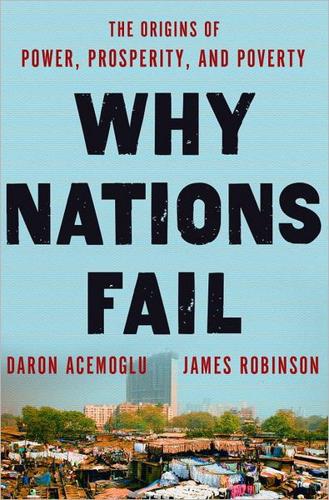
Why Nations Fail: The Origins of Power, Prosperity, and Poverty
by
Daron Acemoglu
and
James Robinson
Published 20 Mar 2012
In November and December 1978, the Third Plenum of the Eleventh Central Party Committee produced a breakthrough. Over Hua’s objections, it was decided that, from then on, the focus of the party would be not class struggle but economic modernization. The plenum announced some tentative experiments with a “household responsibility system” in some provinces, which was an attempt to roll back collective agriculture and introduce economic incentives into farming. By the next year, the Central Committee was acknowledging the centrality of the notion of “truth from facts” and declaring the Cultural Revolution to have been a great calamity for the Chinese people.
…
If one compares 1980 to 1985, then by the latter date, twenty-one of the twenty-six members of the Politburo, eight of the eleven members of the Communist Party secretariat, and ten of the eighteen vice-premiers had been changed. Now that Deng and the reformers had consummated their political revolution and were in control of the state, they launched a series of further changes in economic institutions. They began in agriculture: By 1983, following the ideas of Hu Qiaomu, the household responsibility system, which would provide economic incentives to farmers, was universally adopted. In 1985 the mandatory state purchasing of grain was abandoned and replaced by a system of more voluntary contracts. Administrative control of agricultural prices was greatly relaxed in 1985. In the urban economy, state enterprises were given more autonomy, and fourteen “open cities” were identified and given the ability to attract foreign investment.
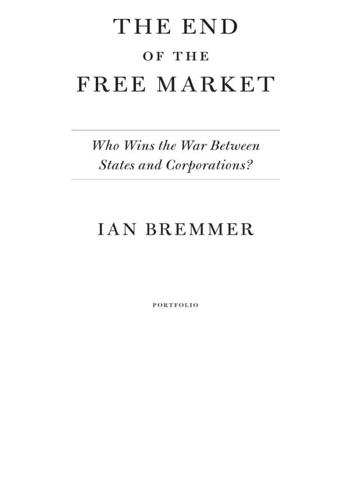
The End of the Free Market: Who Wins the War Between States and Corporations?
by
Ian Bremmer
Published 12 May 2010
Deng’s increasingly ambitious plans, which came to be called “reform and opening up,” began with the establishment in several cities along China’s east coast of “special economic zones” (SEZs), isolated laboratories of carefully managed capitalism, where foreign firms were invited to invest on highly attractive terms. Success in these zones led to the creation of many more. The state abandoned hopelessly inefficient collective farming and created a “household responsibility” system that allowed farmers who had fulfilled their production quotas to sell any extra produce at market prices. Agricultural yields exploded. Deng and Zhao developed other policies that encouraged the growth of private commerce. In the countryside, township and village enterprises bloomed.
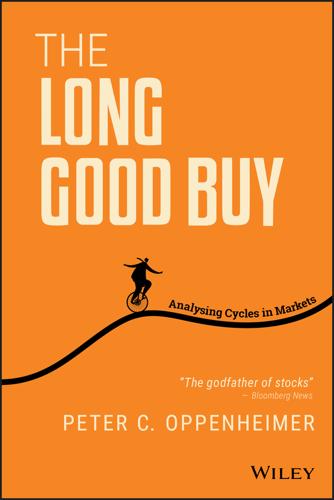
The Long Good Buy: Analysing Cycles in Markets
by
Peter Oppenheimer
Published 3 May 2020
In the summer of 1989, just a few months before the collapse of the Berlin Wall, as the pressures on the Eastern European communist states intensified, Francis Fukuyama, a US State Department official, wrote a paper titled ‘The End of History’ where he argued, ‘What we may be witnessing is not just the end of the Cold War, or the passing of a particular period of postwar history, but the end of history as such: that is, the end point of mankind's ideological evolution and the universalization of Western liberal democracy as the final form of human government.’4 The paper seemed to capture the zeitgeist. In parallel, about this time China was also beginning to open up its economy and embark on reforms. Following the landmark 1978 Chinese reforms that started the ‘household responsibility system’ in the countryside, giving some farmers ownership of their products for the first time, the first ‘special economic zone’ was formed in Shenzhen in 1980. This concept allowed for the introduction and experimentation of more flexible market policies. Although the reforms were slow and not without controversy, by 1984 it became permissible to form individual enterprises with fewer than eight people and, by 1990, a year after the fall of the Berlin Wall, the first stock markets were opened in Shenzhen and Shanghai.
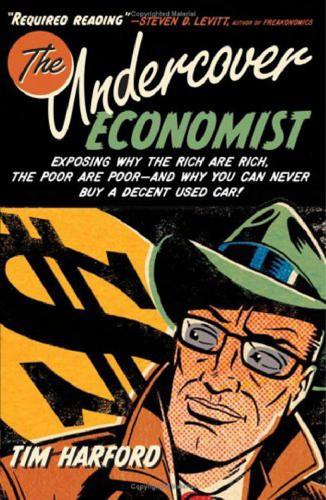
The Undercover Economist: Exposing Why the Rich Are Rich, the Poor Are Poor, and Why You Can Never Buy a Decent Used Car
by
Tim Harford
Published 15 Mar 2006
Instead of clamping down, the government allowed the innovation to see whether it would work, just as a market economy allows small-scale experiments. Households who were renting land from collectives had every incentive to work hard and think of smarter ways of doing things because they were rewarded directly for their successes. Crop yields immediately increased. The experiment spread: just 1 percent of collectives had used the “household responsibility system” in 1979; by 1983 98 percent had switched to the system. These reforms were linked with a number of other pieces of liberalization: the retail price of grain was allowed to rise, further increasing the incentive to produce what was needed. Restrictions on trade between regions were eased, so that each region could enjoy its comparative advantage.
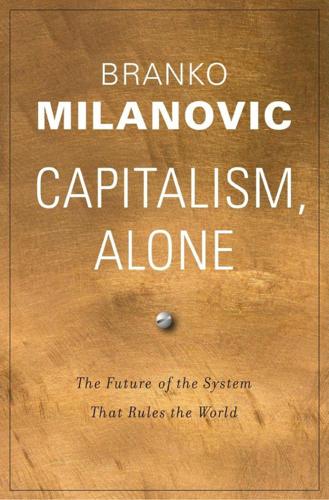
Capitalism, Alone: The Future of the System That Rules the World
by
Branko Milanovic
Published 23 Sep 2019
Regional decentralization, which in recent times Xu dates to the Great Leap Forward, allowed provincial and municipal governments to implement various economic policies and thus to discover what was best for them—as long as it was not in flagrant violation of the central rules and Communist Party ideology. (Although the disregard of the ideology was in reality accepted as long as it was well camouflaged and the policies were successful.) Xu shows that all crucial developments, from the introduction of the household responsibility system (land reform) to the privatization of state-owned enterprises, started at the lower levels of government. They were not, as is sometimes believed, part of some grandiose plan of experimentation thought up at the top, but came about entirely through lower level–based initiatives.53 If reforms were successful, their local promoters were able to get higher positions within the government and the party, to accede to central policy-making bodies (that’s where the centralization part kicks in), and to try to apply the same recipe elsewhere.
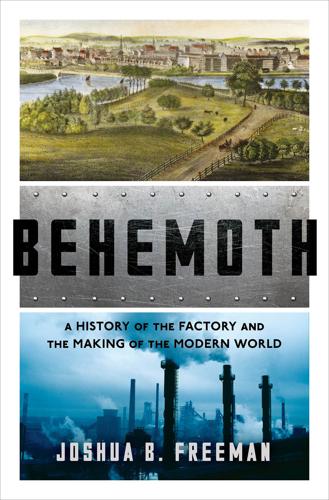
Behemoth: A History of the Factory and the Making of the Modern World
by
Joshua B. Freeman
Published 27 Feb 2018
Soviet and Eastern European factories recruited peasants displaced by the collectivization of agriculture. In China, it was the decollectivization of agriculture that freed up a workforce no longer ensconced in the benefits and obligations of the collective farm. After Mao’s death, communal farms were broken up, with small parcels of land leased to individual farmers under the “household responsibility system,” which allowed them to sell produce exceeding quotas on the open market. Initially, the new system brought a rapid boost to the rural standard of living. But further changes, including opening the country to food imports and rising costs for health care, education, and other social benefits, left the countryside far poorer than the cities.

Meat: A Benign Extravagance
by
Simon Fairlie
Published 14 Jun 2010
Fortunately the British animal-hygiene neurosis hasn’t yet spread to the rest of the world. Over half the world’s pork is now raised in China, much of it in peasant households and small farms. A 1998 US study of Chinese agriculture noted: ‘With the dissolution of many collective farms and the institution of the Household Responsibility System in the early 1980s, backyard [pork] production increased to 92.9 per cent by 1982.’24 The advantage of decentralizing pig production is that it is easy to find waste food locally, easy to dispose of waste, and easy to ensure that nutrients cascade back to the land in the form of manure.
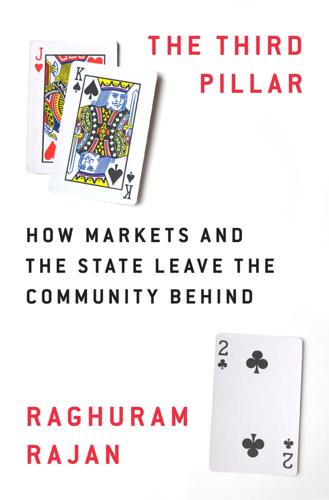
The Third Pillar: How Markets and the State Leave the Community Behind
by
Raghuram Rajan
Published 26 Feb 2019
THE PATH NOT TAKEN The early reforms were often implicit—for example, the authorities turned a blind eye to private commercial activity even though it was technically illegal under the Communist regime. Growth picked up in rural areas, far from the reach of the central bureaucracy, for it was in the rural areas that the party had not entirely snuffed out the notion of private property. Under the Household Responsibility System, rural households contracted land and machinery from farmer collectives and kept any surplus they generated beyond a required payment. It was an important step toward greater agricultural productivity. A number of private firms also started, cloaked in the permissible garb of collectives known as Town and Village enterprises.2 Marxist ideologues had determined that these enterprises would become exploitative if they exceeded seven members, yet the rule was rarely enforced.
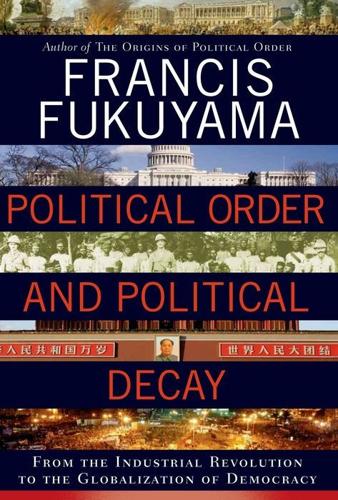
Political Order and Political Decay: From the Industrial Revolution to the Globalization of Democracy
by
Francis Fukuyama
Published 29 Sep 2014
This is evident in the first instance in the large delegations of authority to China’s provinces and municipalities to implement policies in a manner that suits local conditions. This authority often clashes with, and frequently trumps, the interests of the line ministries headquartered in Beijing. Most Western observers focus on the reform’s creation of market incentives through the household responsibility system, which decollectivized agriculture and allowed peasants to keep a much larger proportion of their output. They also point to the creation of four special economic zones open to foreign investment. These were indeed critical: agricultural output doubled in the first four years following the reform as private incentives kicked in, and export industries were seeded in southern cities like Shenzhen.
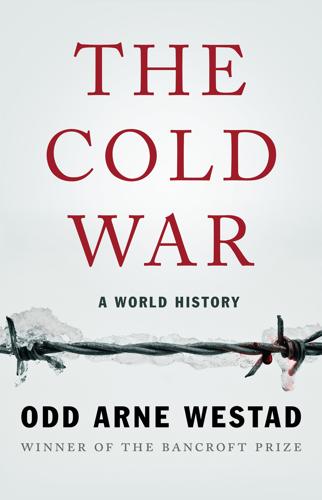
The Cold War: A World History
by
Odd Arne Westad
Published 4 Sep 2017
“We permit some people and some regions to become prosperous first, for the purpose of achieving common prosperity faster,” he told CBS’s Mike Wallace in 1986.2 Deng’s first steps, beyond allowing small-scale private enterprise in trade and services, was to decollectivize agriculture. He dissolved the People’s Communes and introduced a household responsibility system. This meant that families were allocated a plot of land from which they had to deliver a set output to the state, but were free to trade any surplus privately. Agricultural production shot up. Farmers started to save money. Sometimes they pooled their money to start small enterprises in their villages or the nearest town.